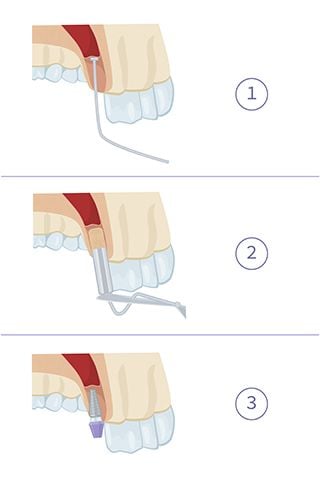Dental implants are a great, innovative way to replace teeth, but sometimes there isn’t enough bone to support the implant. In this case, your doctor might recommend sinus surgery.
 Sinus surgery, also known as a sinus lift, is a bone grafting procedure that will augment and strengthen your jaw bone to create a better support for implants. The procedure lifts your sinus floor, creating space for bone growth and an implant. This procedure is commonly recommended if implants are needed in the back, upper jaw as that bone is naturally thinner than the rest of our jawbones.
Sinus surgery, also known as a sinus lift, is a bone grafting procedure that will augment and strengthen your jaw bone to create a better support for implants. The procedure lifts your sinus floor, creating space for bone growth and an implant. This procedure is commonly recommended if implants are needed in the back, upper jaw as that bone is naturally thinner than the rest of our jawbones.
You might be a candidate for sinus surgery if:
- You are missing more than one tooth in the back of your jaw
- Your tooth has been missing for a long time, leading to bone degradation
- Your tooth was lost due to periodontal disease, leading to bone loss
The surgery is typically performed under local anesthesia, just like a routine filling. Once the area is numbed, an incision is made in the gum to expose the bone. A small opening is made in the bone, to uncover the sinus membrane. The sinus membrane is pushed up and bone grafting material is inserted. The gum is then stitched back up. Typically, healing takes six to seven months before an implant is placed, but in some cases, the implant can be placed during the sinus lift procedure, eliminating the need for a second surgery.
Swelling and minor discomfort last for a few days after surgery, similar to having wisdom teeth removed. Other side effects include sinus inflammation, in which case a decongestant is recommended. Antibiotics are prescribed to prevent infection and in some cases, a non-steroidal anti-inflammatory medication is prescribed to minimize swelling and discomfort.
